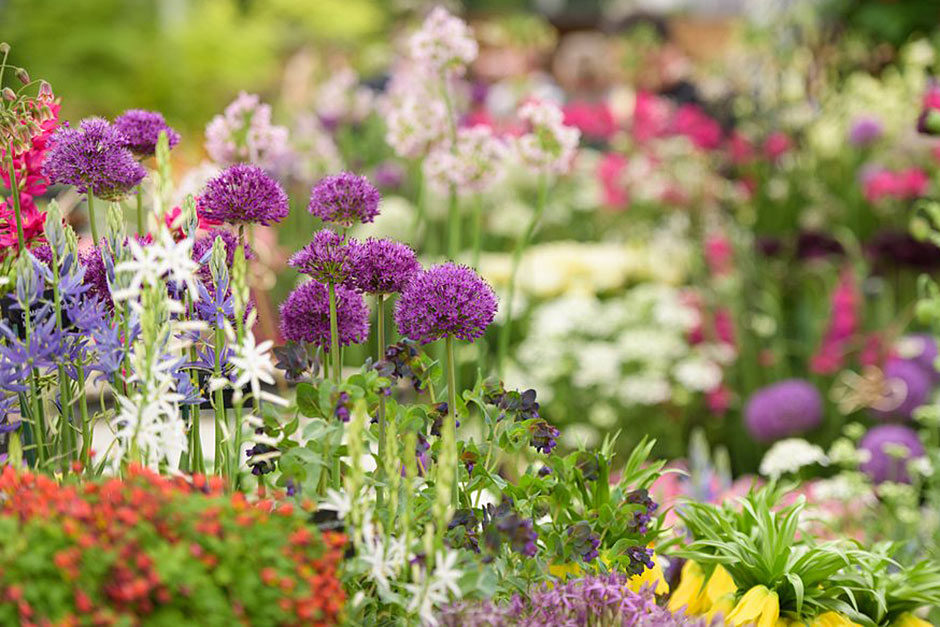Survey highlights ‘lonely’ UK as RHS announces garden to encourage nation to make friends through plants at RHS Chelsea Flower Show
A study* commissioned by the Royal Horticultural Society (RHS) has highlighted that more than half of adults consider themselves to be ‘lonely’ because they are too busy or shy to socialise with others**.
The news comes as the RHS is set to unveil a Garden for the 2020 RHS Chelsea Flower Show, which will encourage the nation to make friends through gardening at a press conference today, Monday 20 January.
The RHS Garden for Friendship will celebrate how you can make great friends through gardening, from community gardening, to sharing plants with your neighbours, discussing top tips and spending time in the garden socially.

The study of 2,000 adults found 28 per cent are too short of time to spend time with others, a third struggle to find people with similar interests and more than 36 per cent simply feel shy. A fifth believed social media has taken over communication and three in 10 put their loneliness down to lack of money.
But while 52 per cent of Brits have experienced feeling alone, the younger generations suffer most, with 68 per cent of 18-24 year olds having felt lonely compared to 41 per cent of the over 55s.
As a result of this epidemic, half have attempted to tackle their loneliness with almost a third joining a social group such as a gardening club. Four in 10 have taken up a new hobby on their own to combat feelings of loneliness. Some 39 per cent of people said they garden or grow plants when they feel lonely.
More than half of adults ‘enjoy’ being surrounded by greenery and a further 53 per cent said it boosts their mood.
The research was commissioned by the RHS in its third year collaborating with the NHS at the RHS Chelsea Flower Show to promote gardening for good mental health. A national competition with NHS Mental Health Trusts will once again see the RHS’ Feature Garden from RHS Chelsea be redesigned and created at an NHS Mental Health Trust.
Sue Biggs RHS Director General said: “It’s worrying to see that half of all adults suffer from loneliness and it really does affect all ages.
“Loneliness is a key issue that can impact mental health and that’s why personal wellbeing is a key theme of the RHS Garden for Friendship.
“It’s clear from the study that the younger generation are affected by the digital age which has resulted in lack of face to face communication, while older demographics are suffering in silence living alone.
“We passionately believe gardening is good for mental health and want to encourage people to join local social gardening groups, garden with neighbours or volunteer in gardens in order to boost their wellbeing and confidence.”
The research also found during the average week adults experience feelings of loneliness three times, but a tenth feel lonely every day.
Almost two thirds – 64 per cent – believe even with lots of friends it’s possible to still feel alone and more than half of adults find it worse today than five years ago.
Similarly, six in 10 worry about feeling even more secluded as they get older, due to friends or family passing away or moving cities and 44 per cent fear living on their own.
As a result, 59 per cent agreed being a member of a community group would make them feel less lonely and a quarter said it would boost their confidence.
And more than a sixth of those polled via OnePoll wish there were more social groups in their community to join.
The average age when Brits have felt most alone was revealed as 37, although a fifth felt they suffered most in their twenties.
Focusing on the younger generation, more than half of 18-24 year olds said growing up in the digital age has had an effect on loneliness and more than a third of them communicate ‘most’ via social media.
In comparison, a third of the over 55 age group speak with others more often face to face.
RHS Director General Sue Biggs added: “Learning from others about gardening, sharing a passion for growing plants, texting or posting pictures of plants with friends and enjoying a cup of tea or glass of wine in a beautiful green space are just some of the ways that plants bring people together. Joining an RHS Britain in Bloom community group is another way to meet people and garden and it doesn’t cost any money.
“We will be sharing ideas and ways to bring people of all generations together through gardening this year and are looking forward to working with the NHS again to create a beautiful relaxing, social garden at one of their NHS Mental Health Trusts.”
